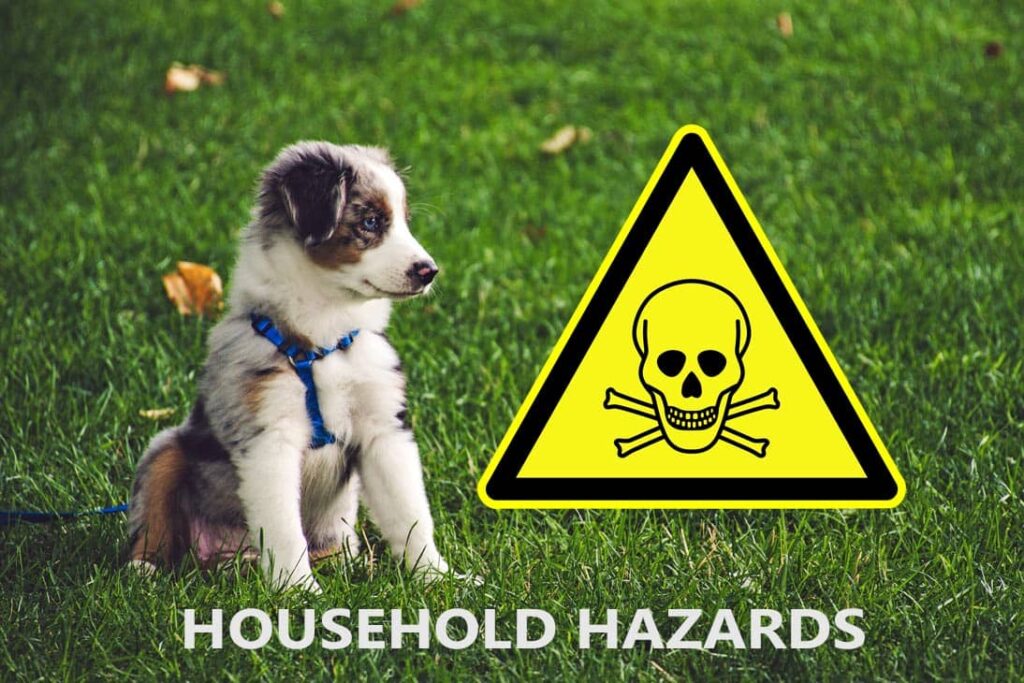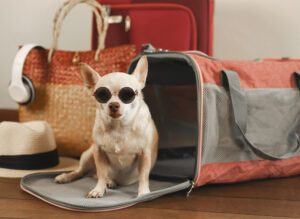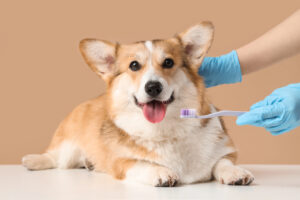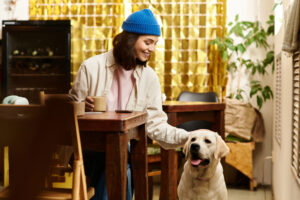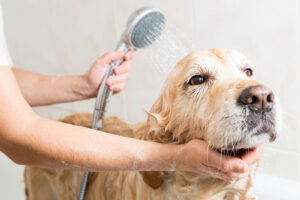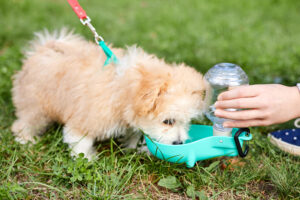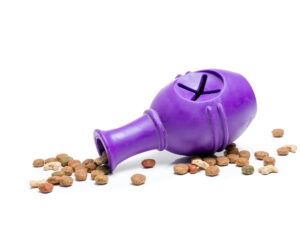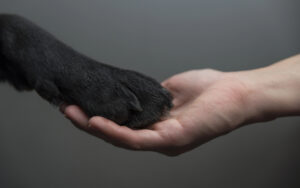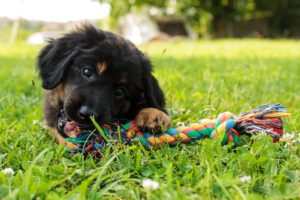While some people keep their pets inside in order to minimize the chances of harm befalling their animals, it is important to remember that a household can contain its own hazards. While an indoor cat is be perfectly protected from being snatched by a hawk or owl and an indoor dog is safe from being poisoned by dog-hating neighbors, indoor pet life has its own rigors that this article intends to highlight and remind you about.
Chocolate

While just about every dog owner knows that chocolate is fatal to dogs, cat owners are less aware that its just as fatal to their feline friends. While it is easy to just not keep chocolate in the house or be extremely careful with the treat when around your pets, this issue becomes a lot more relevant when children, especially young ones, are involved. It is imperative that every dog-owning family explains just how serious is it to not give the pets chocolate, especially during the candy-rich winter holidays. Theobromine is the specific chemical compound, contained within chocolate, that can poison an animal in amounts as small as 50 grams.
Pesticides
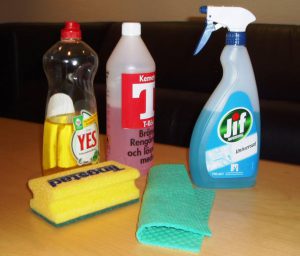
Not all insecticides are made the same way. Some of the top insect-killing sprays contain chemicals that can be just as harmful to animals as the bugs you intended to exterminate. If you happen to have a rat or mouse problem and your cat isn’t up to the task, there is still a risk that your cat might think the poisoned rats and succumb to secondary poisoning. Some varieties of insecticides, such as those for flea or tick control, are clearly labeled to work for one type of animal, like cats or dogs; using such products on animals they are not intended for upon can lead to a variety of health hazards or can even be lethal for the animal.
While most cleaners are perfectly fine when in the company of animals, it is important to read over the labels and to keep all products securely stored out of the reach of your pets. For example, bleach is an excellent cleanser but exposing an animal to it is a surefire way to afflict them with diarrhea, vomiting or even chemical burns. While cats are already quite sensitive to the odors of certain chemicals used to clean clothes, cat owners should be especially mindful of any detergents containing phenols as they can lead to toxicity in the liver and kidneys.
This advice also extends to products that are used to clean the human body, like hand soap and shampoo. An animal that consumes any sort of personal cleaner is likely to react accordingly – with vomiting and diarrhea.
The Toilet
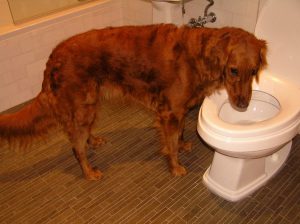
While some owners find it amusing that their dog will treat the toilet like a porcelain water bowl, this behavior should be stopped as soon as possible. Depending on the condition of the toilet when an animal goes to drink from it, they may be taking in traces amounts of cleaning product or even microorganisms in the event that the toilet was left unflushed; neither scenario is something that a pet owner wishes to deal with.
Electrical Wiring
While some young animals may find chewing on power cords to be a fun activity, every little nip and gnaw eats away at the insulating cable that protects them from getting zapped by an active electrical device.
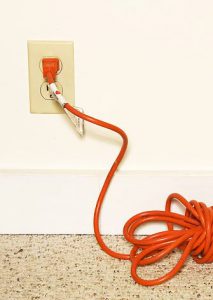
While this covers a good number of major categories for household hazards to pets, it is by no means a fully comprehensive one. Go through your home and look out for any of the things mentioned above, then consider if there are any other potential unmentioned problems to your pets’ well-being.



